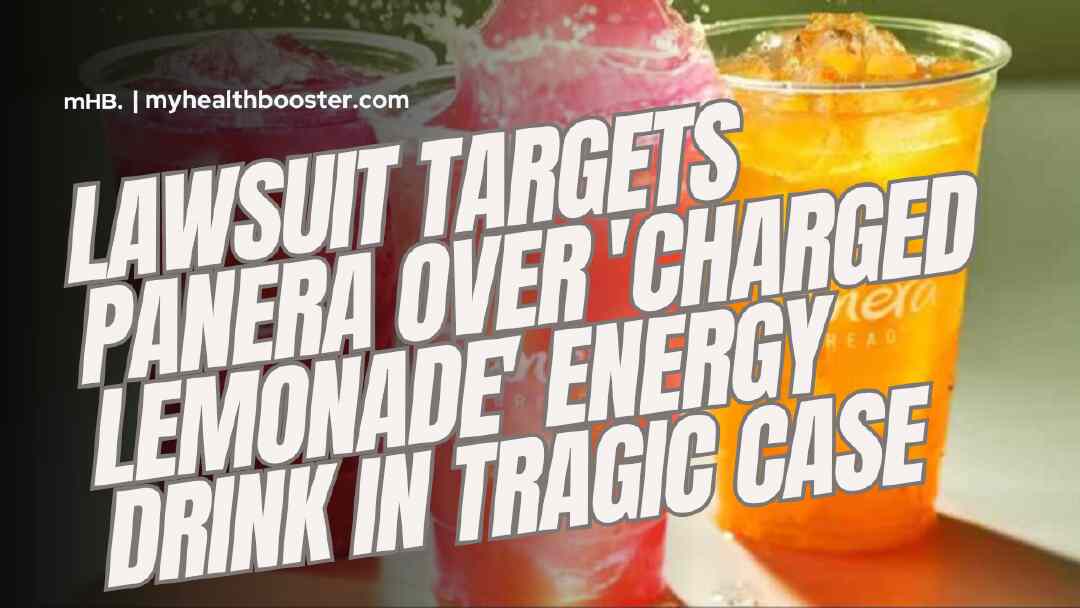The parents of a 21-year-old woman, who tragically passed away after consuming a highly caffeinated energy drink at Panera Bread, have filed a wrongful death suit against the restaurant chain, alleging that their daughter may have mistaken it for regular lemonade due to poor labeling.
In September 2022, Sarah Katz suffered a cardiac arrest while at a Panera Bread restaurant after consuming “Charged Lemonade.” She was subsequently transported to the hospital and experienced a second arrest before her unfortunate demise, according to the lawsuit filed in Philadelphia on Monday.
The lawsuit seeks compensatory and punitive damages on behalf of Katz’s parents.
Panera responded with a statement expressing their condolences and a commitment to a thorough investigation: “We were very saddened to learn this morning about the tragic passing of Sarah Katz, and our hearts go out to her family. At Panera, we strongly believe in transparency around our ingredients. We will work quickly to thoroughly investigate this matter.”
An autopsy report revealed that Sarah Katz’s cause of death was cardiac arrhythmia due to long QT syndrome (LQTS), a disorder known for causing life-threatening fast and irregular heartbeats. Katz had been diagnosed with LQTS at the age of five and managed her symptoms with medication and caffeine limitation, as mentioned in the lawsuit.
Many energy drinks contain high levels of caffeine, added sugars, B vitamins, and other legal stimulants. Panera’s “Charged Lemonade” includes sugar, caffeine, coffee extract, and guarana extract, all of which are sources of caffeine.
Health experts have consistently cautioned that young individuals consuming energy drinks may experience dangerous side effects like dehydration, irregular heartbeat, and heart failure. Those with specific heart conditions might be more susceptible to these drinks’ stimulating effects and adverse consequences.
However, Katz “reasonably believed it was a traditional lemonade and/or electrolyte sports drink containing a reasonable amount of caffeine safe for her to drink,” the lawsuit asserts. It further accuses Panera of misleading consumers by not clearly labeling “Charged Lemonade” as an energy drink in its stores.
Instead, the lawsuit claims that Panera markets and sells “Charged Lemonade” as a product that is “Plant-based and Clean with as much caffeine as our Dark Roast Coffee.” However, the lawsuit contends that the comparison is vague and unhelpful because Panera does not specify what size of Panera Dark Roast coffee is similar to a Panera Charged Lemonade.
Online, Panera states that its “Charged Lemonade” has a comparable caffeine amount to its Dark Roast coffee. A large-sized “Charged Lemonade” contains approximately 390 mg of caffeine. The U.S. Food and Drug Administration suggests that a safe caffeine quantity for healthy adults is about 400 milligrams per day, roughly equivalent to four or five cups of coffee.
The lawsuit also highlights the fact that “Charged Lemonade” is mixed “in-house” by store employees, making its caffeine content unregulated and, therefore, prone to variation.
Elizabeth Crawford, the attorney representing Katz’s parents, emphasized their desire to ensure that the drink carries a warning or is removed from shelves, stating, “It’s a dangerous energy drink and it’s not advertised that way. We want to make sure this does not happen to someone else.”
